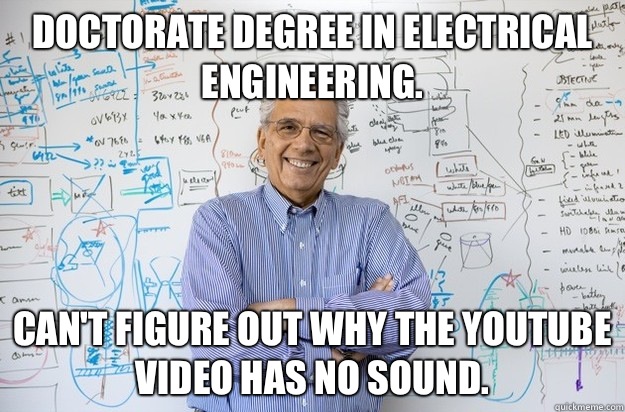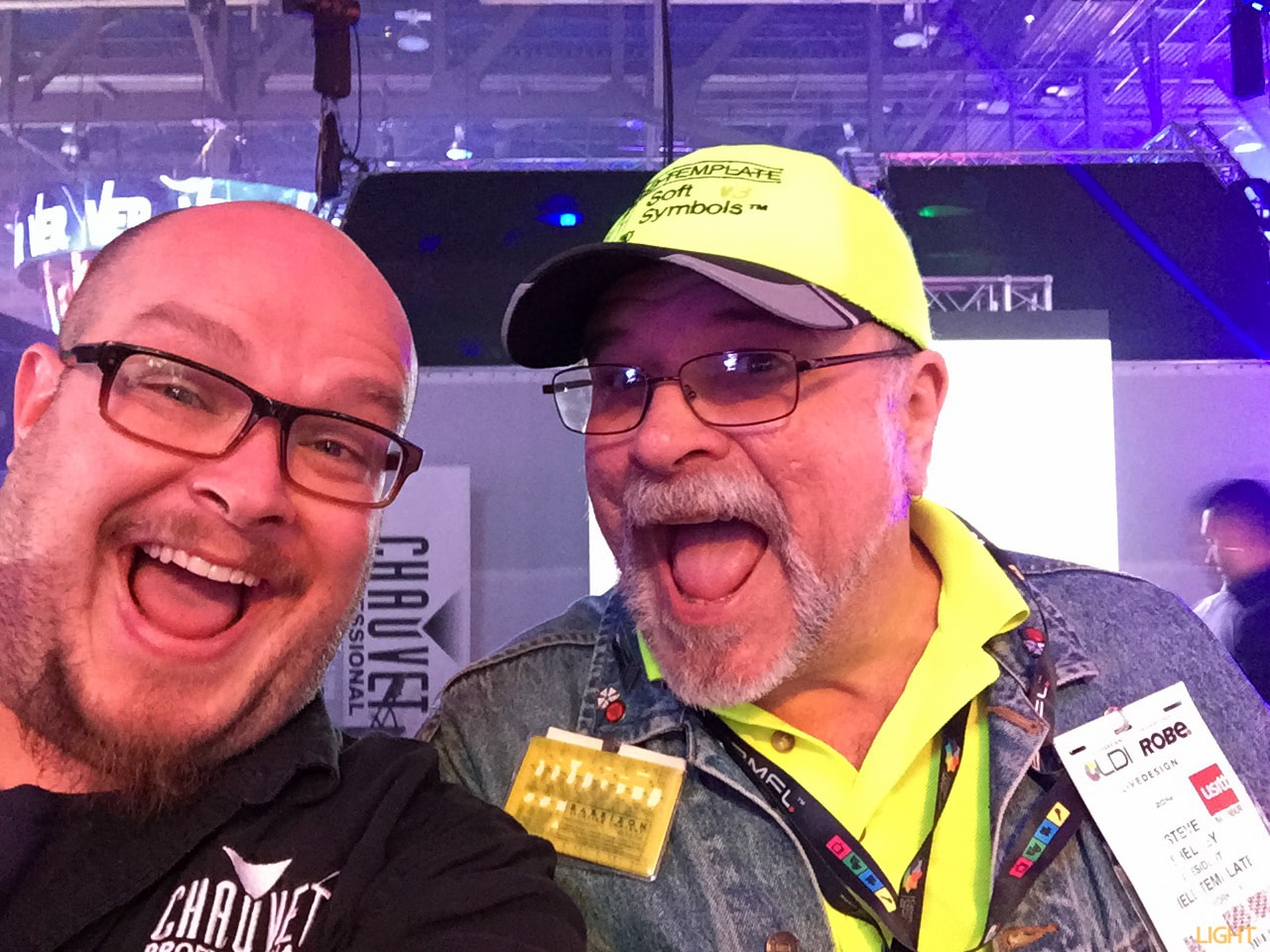
Teaching is not just fundamental, it’s imperative to our industry.
If you get pissed off reading this, it’s meant for you.
What your anger means is that you’re guilty.
This can be fixed though, you CAN be an efficient modern lighting teaching instrument. You just have to want it.
I spend a lot of time on the road, as is obvious from my Instagram, Facebook, and Twitter accounts. When I am on the road talking to people, I often ask them a few questions, especially the younger guys and gals — I just met a super cool girl named Victoria that has no collegiate schooling at all; she was working Merchandise on the road before making her in-row as a lighting intern. I asked her these questions:
- “Where did you go to school/Who did you study with?”
- “Was there anything that you found you learned better on the job?”
- “If you had the option, what would you rather have learned in the school setting?”
Now obviously she didn’t go to college, so a few of those didn’t qualify for her. But one thing that is a constant throb in my f*cking head is the fact that a lot of teachers I speak to, especially the tenured ones, have pretty much the same tired ass fundamental excuse for why their kids don’t know about things that are very relevant in today’s working industry:
“But college is about teaching the fundamentals, not showing them about technology.”
BULL-F*CKING-SHIT.

Of COURSE teaching lighting fundamentals is important. OF COURSE learning how to draft by hand is important, I teach it that way too. In order for a student to know what the task is like on a computer means showing them how to do it when their computer is dead as shit. To that effect, also important is operating a two-to-five scene preset desk so that they understand just what a blessing it is to have access to write a stack playlist somewhere, maybe trigger OTHER playlists from that single stack. All modern console companies allow for this, it’s your responsibility to learn it well enough to teach it back to your kids.
College isn’t cheap. At all. For anyone. Your old out-of-date lectures aren’t going to cut it anymore, and it makes your institution look lazy.
If you were on quarters for example and had ten weeks per class for four years, your excuse still blows, but at least you have a somewhat terrible excuse for your tenure review committee. If you’re on semesters and have lighting students for four years, it’s time to start servicing the industry today. USITT wants you to do it, I want you to do it, PLASA wants you to do it, LDI offers classes SO you can do it and the rest of the people in the industry who have to deal with your mediocre teaching methods want you to do it too.
Tenure Review Committees, pay attention. You need to start judging your people harder. Shouldn’t tenure mean more than “hell, I put up with this shit for four years and kissed enough asses?” This industry is so chock full of technical equipment and necessary know-how that you need to start being a bit more hard on your lighting design professors and their success rate at placing kids in gigs in the real world industry. Having a BA or BFA student leave your place without having at least SOME know-how on how to set up a lighting network, or how to operate something newer than your Express 250 or Strand 520i, is imperative.
Since so many people in this business get their panties in an uproar whenever their shit is mentioned, understand this — those two desks just referenced are absolutely awesome desks, and frankly I would play on one if they were still spec’d in the industry on the kinds of shows your students are going to find themselves in, especially if they journey outside of community theatre. As a matter of fact, I’ve probably forgotten more about those two desks than a lot of you will be able to teach your students, and this is a problem.

Let’s take a look at some of the professor excuses I get to these comments:
- “I have a lot of University meetings I am required to attend.”
- “I just got into the Union! That helps my students.”
- “I’m preparing for my Tenure Committee review.”
- “My students had rehearsal last night so I didn’t want to push them that hard.”
- “Half of these students have NO future in our industry.” [REALLY?!]
- “These are [actors/dancers/singers] who have no interest in what I’m teaching.” [WTMF?!!!]
Well, GUESS WHAT! That’s all more bullshit that you can save your kids from by applying yourself. I used to teach three courses of dancers in an intro lighting course. What came out of my mouth frequently is that “this is relevant information for those times when you’re in between companies or auditions, so you can make rent. And, this is WAY more fun than waiting tables.”
Was I a perfect teacher? Most definitely not, I tried to maintain my career while I was teaching. That causes a lot of jealousy and anger among non-supportive colleagues. But I gave a shit about giving my students relevant, useful, and pertinent information they at least could use while they started their first gigs out there. Perhaps my colleagues didn’t like me, but most of the students I taught are working, in their chosen field. Suck on that.

“Oh but why aren’t you teaching anymore, Jim? Can’t you handle it?”
Nope. I got outta Shawshank. In most places, the pay sucks — the administration either A) could give a shit about your little ‘Thee-Ate-‘Er plays’, B) has no money ever allocated to the furthering of your craft, or C) has no plans to allocate any more money than the couple of thousand a year Lighting gets for “lamps and gel.” Besides, playing nice with people who feel like it’s their god-given right to be crusty and shitty is not my idea of a nurturing environment for professors. I can’t even IMAGINE what the High School market is like. I feel that I can frankly more effectively spread information across a wider group of people doing what I do right now than I ever could as a professor. As a matter of fact, just recently an acquaintance of mine lost her job because the Tenured Boys Club at her specific institution didn’t think she fit in, regardless of the fact that she was a great prof and had more info for the students in the crack of her ass than most of them had combined. It’s a crying shame that happens every day across the world.
Here’s a good place to start upping your game in the lighting classroom — if you can learn about these things, you will help your students all place in jobs and graduate schools once they leave your stead. Do you understand how important this is? Give your students the ability to actually speak and understand today’s lighting language. Here’s eleven places to start, with another several thousand available:
- Artnet, Streaming ACN, and delivering DMX over something other than your stock 5-pin DMX cable, or even worse, your 3-pin MIC cable that is fed into some shitty 3-pin to 5-pin adaptor at your “tech booth.” These things are what is running larger format shows anymore, and frankly, most shows in general. Artnet is not quite as good as sACN, but you’ll learn why when you apply yourself. I know money’s tight. Rent something to expose the students to the same old DMX, but sent and received in a new way. It really does blow minds.
- Get yourself in front of the budget committees, Dean, Provost, and anyone else who will listen about some kind of “rental budget.” Maybe VL3500 spots are out of your price range to buy, but don’t you understand the importance of students just getting to take them out of the case and plug them in? Patch them? Learn why you TILT first and never PAN first? Allow them to PLAY so that when they’re in the real world with people expecting them to deliver, they make good choices because you gave them the ability to play first.
- I understand you already have an ETC Express 24/48 or an Express 250, or maybe even something as lovely as a Leprechon LP-612. Why not rent in a Hog 4, MA2 lite, Avolites Tiger Touch 2, or something larger format so that your students can understand why in the real world we use more than one playback for a reason? While we’re on that subject, familiarize yourself with things like what TRACKING is and how to use it… what a PART CUE is… How to use Spreadsheet on an ETC desk you may have in your theatre… what split timings are… inhibitive submasters and why they’re useful…installing profiles for multi-channel fixtures… ALL of that stuff is included in your stack desk, it’s all basic programming. All this costs you is time, and if you don’t have time for your students, you don’t deserve to be anywhere near them. Sorry, that’s our industrial reality.
- Have you any idea how many free resources there are out there to get you at least somewhat more intelligent for your students than you are now?! How about Control Booth, The Light Network, ESTA, Jim On Light, ProLightingSpace, and USITT just to name a few? What the hell are you waiting for?
- Electrical — teach your kids how to read a meter. Teach them about continuity checks, they’re not always gonna have a GamChek at their disposal. Teach them how to meter power coming from a distro, SAFELY, and show them how it is to not get dead when doing something like that. Ever handed a young stagehand a meter and watch them struggle to even plug their leads in? Terrifying. Teach them which holes NOT TO STICK THE PROBES IN, too. Holy shit.
- Pay Richard Cadena to come to your school. Take your happy ass over to the chair of your department and ask him or her to ask HIS or HER boss to find the small amount of money to do just that. When he leaves, your students will know more about electricity than you’ve ever imagined.
- Start studying for the ETCP test, the NCQLP test, and anything that will help you have more learned information in your LD bag of tricks. You don’t have to actually take or pass the tests if you’re not feeling confident, but just studying those exam prep guides will show you just what you DON’T know.
- Get your kids involved with USITT, ESTA, PLASA, and anything else that exposes them to people like me, like Richard Cadena, like Brad White, like Richard Belliveau, Berenice and Albert Chauvet, Ford Sellers, Matthias Hinricks, Rick Hutton, Eric Loader, and working LDs like Patrick Dierson, Sooner Routhier, Josh Schultz, BudRock, Benny Kirkham, Peter Morse, Anne McMills, Tharon Musser, Kevin Adams, Natasha Katz, Don Holder, Neil Austin, Jules Fisher and Peggy Eisenhower, Chris Ackerlind, and the other thousand and a half names that didn’t just pop in my head. Get your kids around working people like Laura Frank, Sean Cagney, Loren Barton… people who know what the f*ck they’re doing so that your students have positive role models.
- Have your students study modern lighting history. Learning about 360Q’s and Strand Century 6X12’s is no longer applicable in today’s society of lighting, because they’re going to run into a Source Four ERS or Ovation LED ERS before they’re going to see a rental gig with 360Q’s on it. Please do this. It is so embarrassing for a student to ask how to run the barrel on a source four, for me, you, AND them… because you bet your ass that information is going to get to someone you know that you don’t want to have know that your student had no clue.
- Do you know what RDM is? Well, that’s a shame if you said no. I’d learn it if you want students to be prepared. OF COURSE they need to know what they are and where they came from, it’s our SM-58, essentially — they are used all over the world still. But that’s also like saying that if you know how to use a hand saw, you’re good with a plasma cutter.
- Last but not least… download some of the free MEDIA SERVER software available out there for use and abuse. Teach your kids that we have these little computers that allow you to send console commands to them and play videos and images on video walls. Can you believe that?! If you’d have been keeping yourself relevant, you could.
One more thing: getting “tenure” doesn’t excuse you from doing your job. At all. If anything, it SHOULD mean that you’re trustworthy of doing something GOOD and being better at it than the others in your faculty. I yet to see a place like that. Tenure in today’s society means that you have a harder time getting a tenured prof terminated.
Ok, I’m done here. Pissed off? Good. Start making yourself a better teacher. You’re sending out kids into a very complicated and dangerous world unprepared. It’s time to put on those adult lighting undies and start kicking ass. I’m counting on you, so are the rest of us. Remember this: we are all ineffective if we all don’t give a shit. This may not be rocket surgery as Kirby Roberts always says, but to us, it’s our life and love and most favorite thing to do.
Now go get ’em, tiger.





What you say holds a lot of truth.
My favorite truth about college only partially blends with it. “A bachelors degree is not job training!”
BAs are to make one a generally better person and a major is a focal point to keep us involved. There are very few jobs that a one only needs a 4 year degree and there is very little real world training in any field. Then there is the whole, how to get a job issue. That too was skipped in my education and in my children’s. Masters degrees are job training. Internships, summer jobs and first jobs teach more about what is actually happening.
Well said. Regardless if the person works for the same company or that person teaches at the same institution for a long time, you can reside at a place for too long and become stale.
I think that is generally exactly what happens about 75% of the time with tenured faculty.
I know a lot of people are going to say something like “well, Jim never got tenure so he’s fucking jealous.” Uh, no. When I left education I tripled my salary. I never went through the tenure process long enough to become interested because frankly, a lot of the tenured people I know need some lessons on ethics and keeping up with the trade. Tenure in America at least feels a lot of the time like a club that you either fit into or not, and who decides when and how you fit in based on their loose criteria. As a matter of fact, an acquaintance of mine from a while ago was just let go from her teaching position because of the fucking Boy’s Club that the tenured group at that particular University decided, and this was a professor that had more info and teaching prowess in the small of her back than most of the tenured people at that institution have collectively. It’s a shame. A shame no one is going to do shit about any time soon.
I am totally with you on this one Jim. One of my biggest frustrations when attending a larger state school is that they had moving lights and other intelligent fixtures, but we were not ALLOWED to use them. I was lucky enough to teach myself through a theater job I had during school, but all of the other kids were not as lucky, and have suffered initially because of it. Moving lights, LED’s and other multi-parameter devices are standard practice now, and we need to teach that. I think most the biggest reason it’s not is the lack of the professors desire or ability to learn it themselves…
This is true. But before any of that. Long before that you need to teach threm about light. How it affects human beings, how it works with our psychology. How using light can cause an emotion to sweep across an audience,How, even before a word is spoken or a note is played to tell the audience where they are , when it is set, the time of day and what kind of show to expect. Its the picture that counts. How you acheive it is just housekeeping. Then and only then teach the housekeeping.
Oh brother I believe that we agree on this totally! That’s just how I teach though, light and how it interacts with the body is a class among itself, or at least it should be.
Comments are closed.